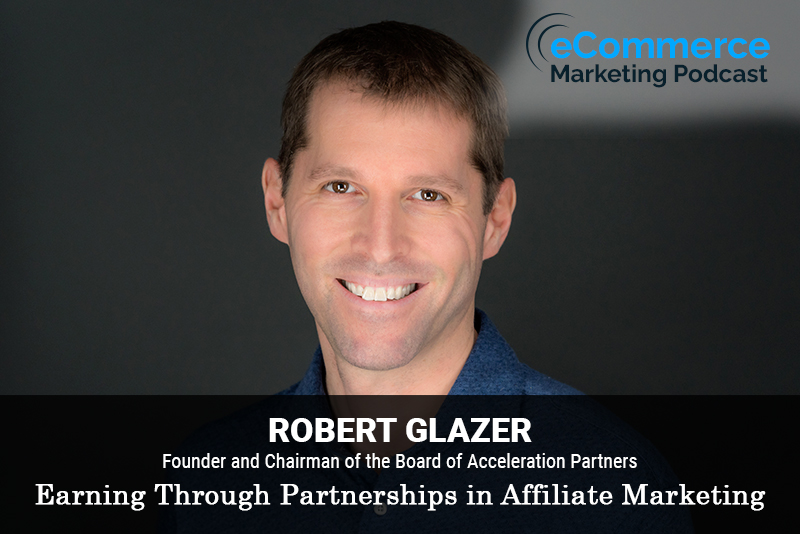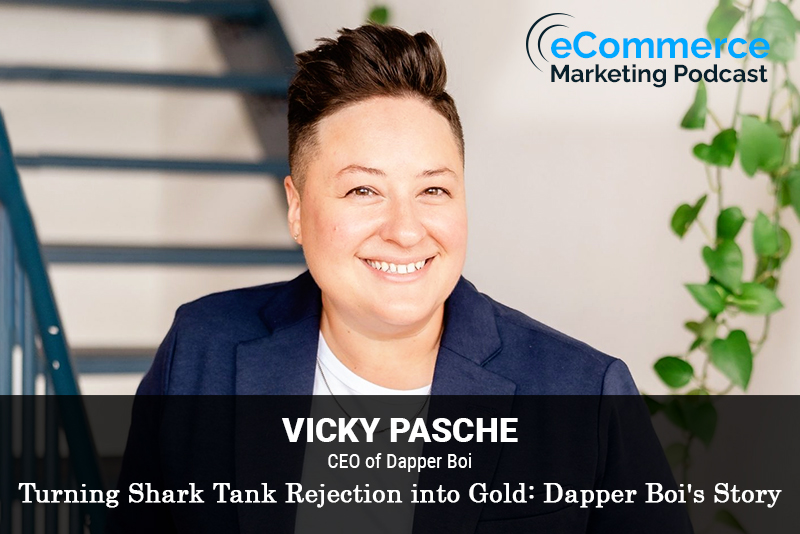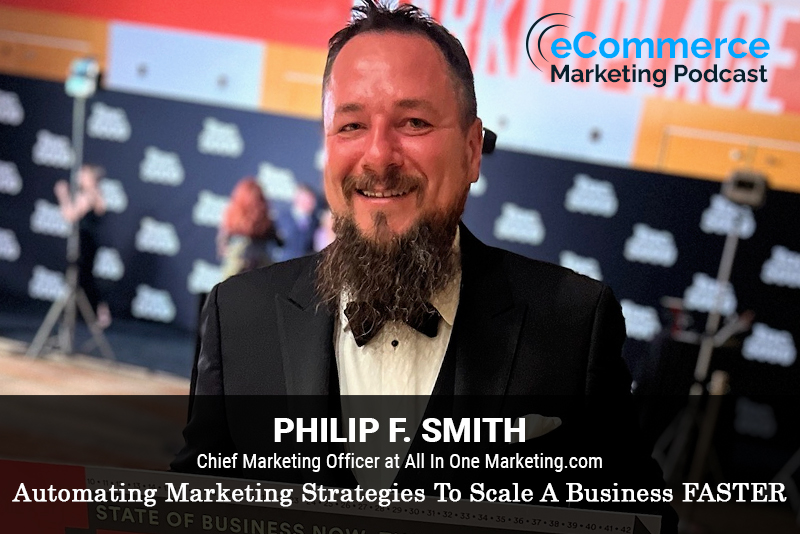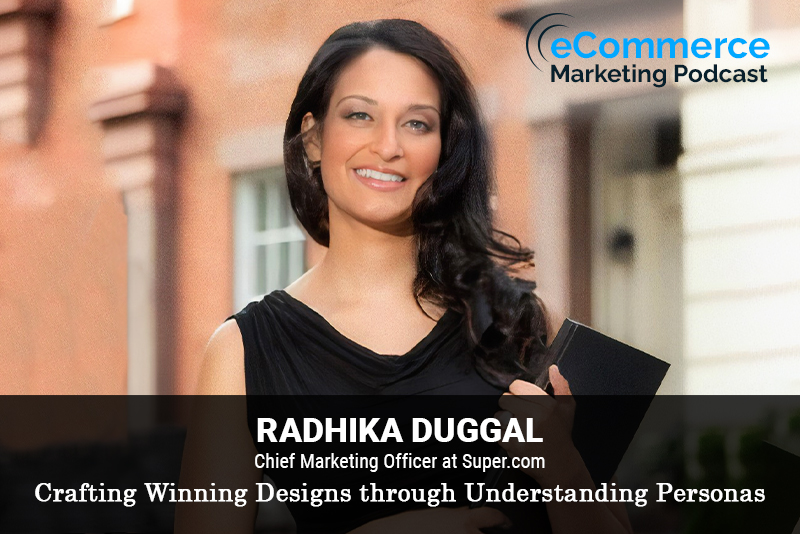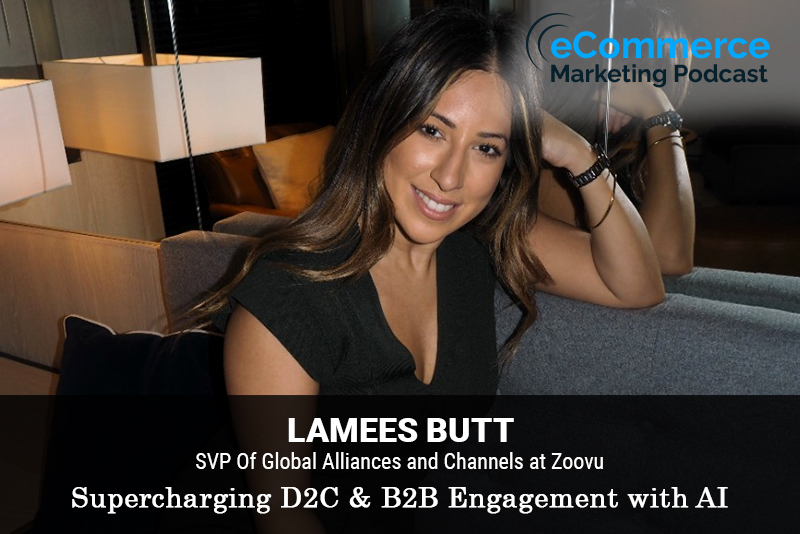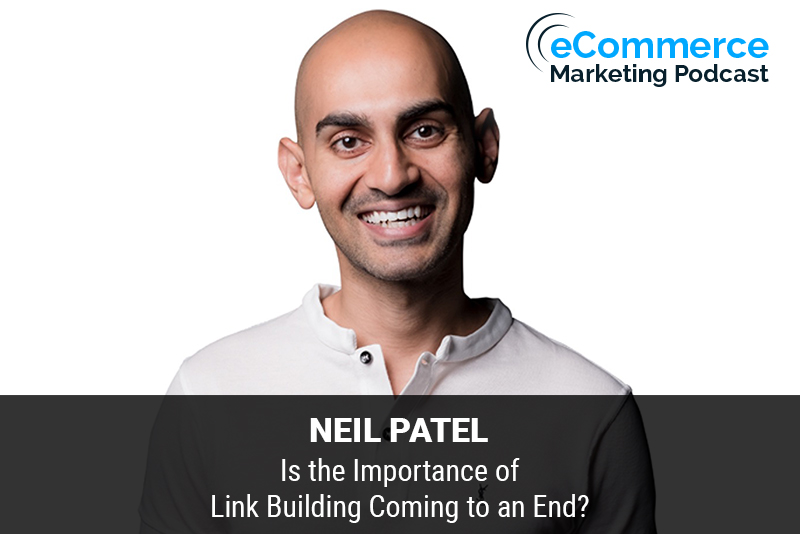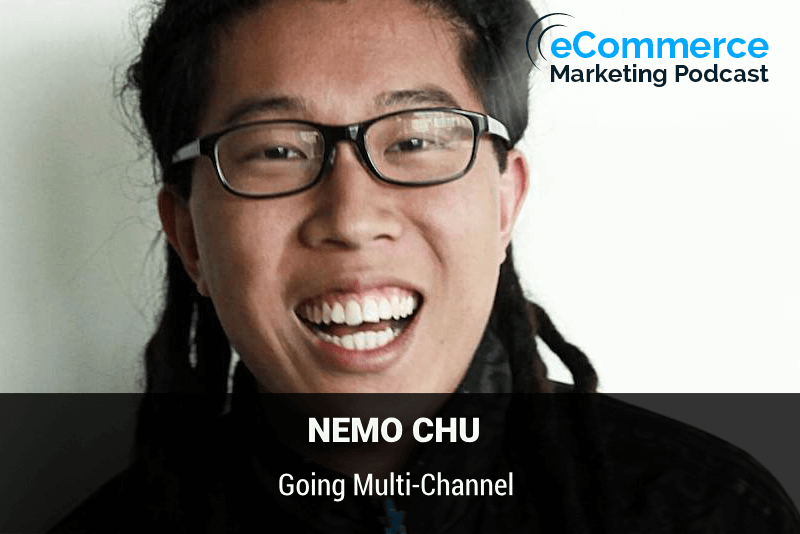
The eCommerce Marketing Podcast walks you through everything that goes into ecommerce marketing — from inbound marketing to paid advertising to conversions. Learn the strategies top marketing experts use to grow their businesses.
Robert Glazer is the Founder and Chairman of the Board of Acceleration Partners, a global partner marketing agency and the recipient of numerous industry and company culture awards, including Glassdoor’s Employees’ Choice Awards two years in a row. He is the author of the inspirational newsletter Friday Forward, and the #1 Wall Street Journal, USA Today and international bestselling author of five books: Elevate, Friday Forward, How To Thrive In The Virtual Workplace, Moving To Outcomes and Performance Partnerships. He is a sought-after speaker by companies and organizations around the world and is the host of The Elevate Podcast.
In this episode, you will learn
- How has affiliate/partner marketing evolved over the past decade, and what are the most significant changes
- What are the key strategies for creating a successful and sustainable affiliate marketing program
- What are some common misconceptions about affiliate marketing that businesses often have, and how do you address these
- How has technology impacted the affiliate marketing landscape, and what tools do you consider essential for modern affiliate marketers
- For those just starting out with affiliate or partner marketing, what are your top pieces of advice for achieving success
- Future Trends in affiliate marketing
For show transcript and past guests, please visit https://www.ecommercemarketingpodcast.com
Or on YouTube at:
https://www.youtube.com/channel/UC3PgT0NOGzpdPGQtBK0XLIQ
Follow Arlen:
Twitter: https://twitter.com/askarlen
Facebook: https://www.facebook.com/arlen.robinson.7
Instagram: https://www.instagram.com/arlenyohance/
LinkedIn: https://www.linkedin.com/in/arlenrobinson/
Past guests on the ecommerce marketing podcast include Neil Patel, Nemo Chu, Luke Lintz, Luke Carthy, Amber Armstrong, Kris Ruby and many more.
Thanks for listening. Be sure to subscribe and leave a review.

In this episode of the eCommerce Marketing Podcast, host Arlen Robinson interviews Robert Glazer, Founder and Chairman of the Board of Acceleration Partners, a global partner marketing agency. Robert shares his extensive knowledge and insights on affiliate and partner marketing, discussing its evolution, key strategies for success, and the impact of technology on the industry.
Key Takeaways
- Introduction and Robert’s Background ([00:06] – [04:04])
- Robert’s accidental journey into founding Acceleration Partners.
- Early involvement in the affiliate industry and helping build successful programs for companies like Tiny Prints.
- Evolution of Affiliate and Partner Marketing ([08:18] – [10:59])
- Transition from affiliate to partner marketing, emphasizing closer relationships and transparency.
- Convergence of influencer and affiliate marketing, focusing on audience, tracking, and performance-based payments.
- Key Strategies for Successful Affiliate Programs ([12:06] – [13:57])
- Proper resourcing and commitment to the program.
- Importance of structured outreach and recruiting functions for growth.
- Common Misconceptions About Affiliate Marketing ([15:53] – [17:33])
- Misconceptions about the ability to quickly scale with large investments.
- Misunderstandings about the value of coupon and loyalty programs, and the importance of targeted, controlled strategies.
- Impact of Technology on Affiliate Marketing ([19:19] – [22:24])
- Historical lack of innovation in the industry and recent advancements driven by new competitors.
- Importance of modern tools and platforms that offer innovative features and better performance tracking.
- Advice for Brands Starting with Affiliate Marketing ([24:50] – [26:34])
- Finding the right person or agency with expertise.
- Making a long-term commitment and focusing on recruiting and activating partners.
Guest Info
Robert Glazer
Founder and Chairman of the Board of Acceleration Partners
Website: RobertGlazer.com
LinkedIn: Robert Glazer
Newsletter: Friday Forward

